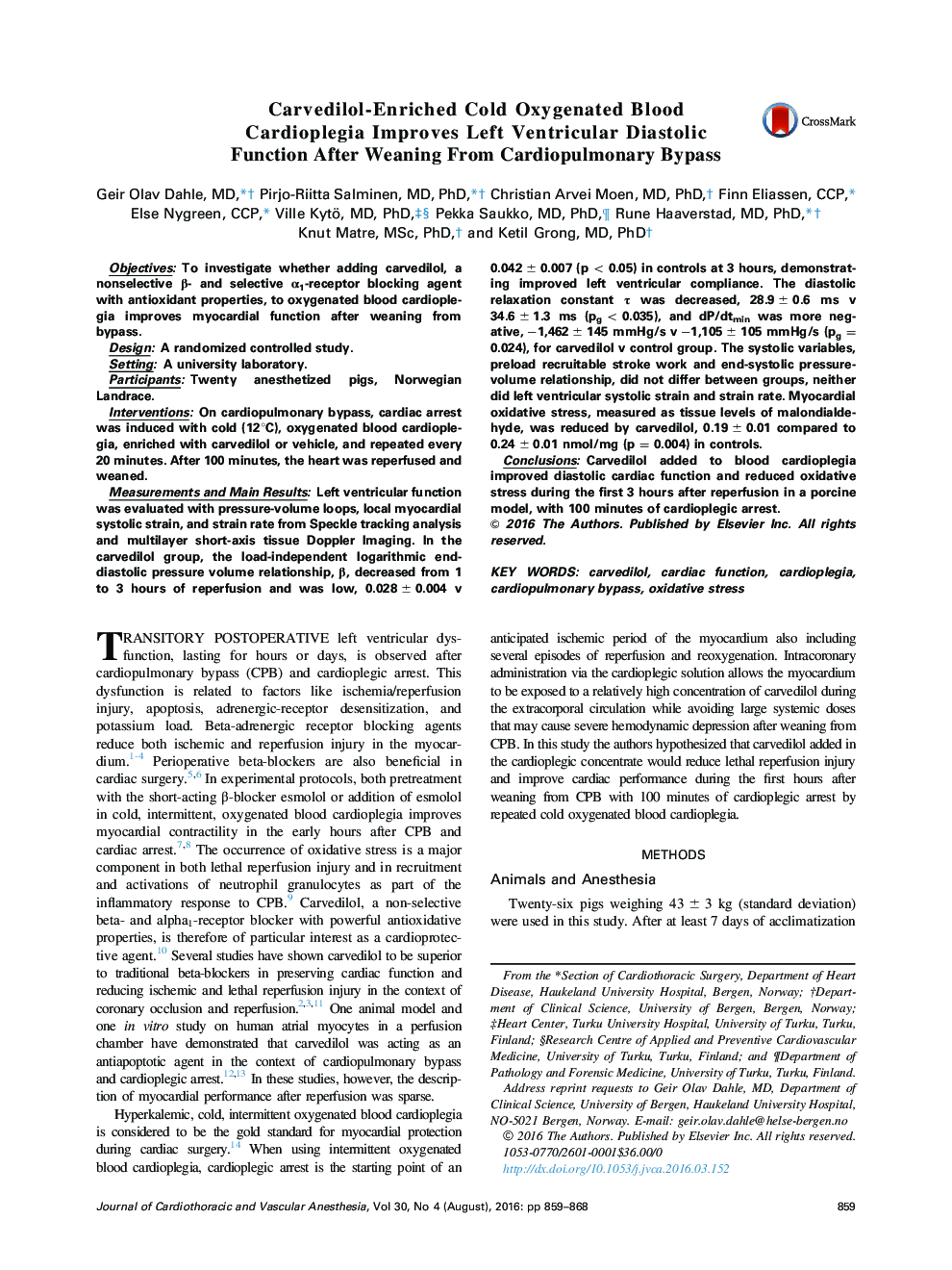| کد مقاله | کد نشریه | سال انتشار | مقاله انگلیسی | نسخه تمام متن |
|---|---|---|---|---|
| 5883485 | 1150137 | 2016 | 10 صفحه PDF | دانلود رایگان |

ObjectivesTo investigate whether adding carvedilol, a nonselective β- and selective α1-receptor blocking agent with antioxidant properties, to oxygenated blood cardioplegia improves myocardial function after weaning from bypass.DesignA randomized controlled study.SettingA university laboratory.ParticipantsTwenty anesthetized pigs, Norwegian Landrace.InterventionsOn cardiopulmonary bypass, cardiac arrest was induced with cold (12°C), oxygenated blood cardioplegia, enriched with carvedilol or vehicle, and repeated every 20 minutes. After 100 minutes, the heart was reperfused and weaned.Measurements and Main ResultsLeft ventricular function was evaluated with pressure-volume loops, local myocardial systolic strain, and strain rate from Speckle tracking analysis and multilayer short-axis tissue Doppler Imaging. In the carvedilol group, the load-independent logarithmic end-diastolic pressure volume relationship, β, decreased from 1 to 3 hours of reperfusion and was low, 0.028±0.004 v 0.042±0.007 (p<0.05) in controls at 3 hours, demonstrating improved left ventricular compliance. The diastolic relaxation constant Ï was decreased, 28.9±0.6 ms v 34.6±1.3 ms (pg<0.035), and dP/dtmin was more negative,â1,462±145 mmHg/s vâ1,105±105 mmHg/s (pg = 0.024), for carvedilol v control group. The systolic variables, preload recruitable stroke work and end-systolic pressure-volume relationship, did not differ between groups, neither did left ventricular systolic strain and strain rate. Myocardial oxidative stress, measured as tissue levels of malondialdehyde, was reduced by carvedilol, 0.19±0.01 compared to 0.24±0.01 nmol/mg (p = 0.004) in controls.ConclusionsCarvedilol added to blood cardioplegia improved diastolic cardiac function and reduced oxidative stress during the first 3 hours after reperfusion in a porcine model, with 100 minutes of cardioplegic arrest.
Journal: Journal of Cardiothoracic and Vascular Anesthesia - Volume 30, Issue 4, August 2016, Pages 859-868